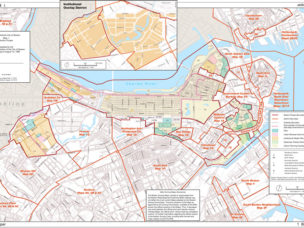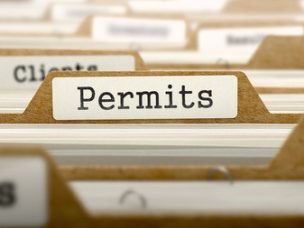Stay in the know
Subscribe to the Real Estate Blog and we’ll send you an email each time something new is posted.
Subscribe to the Real Estate Blog and we’ll send you an email each time something new is posted.
Blogs
Real Estate Blog
10 Highlights of “An Act Promoting the Planning and Development of Sustainable Communities”
With the support of numerous environmental, housing and planning groups (along with some municipal leaders and, most recently, The Boston Globe), House Bill 1859 entitled “An Act Promoting the Planning and Development of Sustainable Communities” has been referred to the Legislature’s Joint Committee on Municipalities and Regional Government. Introduced by Representative Stephen Kulik and Senator Daniel Wolf back in February, this bill marks an effort to overhaul 1970’s era Massachusetts state laws governing municipal zoning, subdivision control, and planning. Although previous efforts at land use reform have failed to make it out of committee, this most recent iteration seems to have some momentum.
At the end of June, The Boston Globe published an editorial encouraging lawmakers to support the bill, specifically to allow communities to designate dense-growth zones with increased access to state aid would help to “ease Massachusetts’ housing woes.” Some municipal leaders have supported the bill, touting its potential positive impact on housing development including Winchester Town Manager Richard Howard (in the Globe article) and Somerville Mayor Joseph A. Curtatone (see link to editorial). Proponents of the bill have argued that smart growth projects like Somerville’s Assembly Square development would be beneficiaries of the new bill.
Developers will likely find H.B. 1859 a mixed bag. Proposals allowing communities to consolidate permitting for projects would no doubt be a welcome change, however, the expansion of municipalities’ right to impose impact fees (mandatory payments from developers to mitigate impacts of development on municipal infrastructure) will not be viewed as desirable.
Below are some highlights:
- Permits communities to require a simple majority vote to amend a zoning law and to approve a special permit (as opposed to the currently mandated two thirds vote).
- Increases the period within which construction must commence or substantial use made of a special permit from not more than 2 years to not more than 3. Also establishes a process for the extension of a special permit.
- Approves impact fees to recoup some costs that developments add to municipal infrastructure.
- Creates an alternative process to resolve disputes among applicants, municipal officials, and the public using a “neutral facilitator” to work through disagreements concerning proposed developments.
- Revises current law regarding issuance of variances from zoning ordinances or bylaws, including an explicit ability to deny variances because of “self-created” hardship, extending the period within which construction must commence or other substantial use of variance must be made from 1 year to 2 and increasing the extension from 6 months to 1 year.
- Creates the option of consolidated permitting for larger projects, including a concurrent application process and consolidated hearing.
- Allows municipalities to “opt-in” and adopt zoning changes to create denser growth zones which would open up eligibility for state funding.
- Rewrites the law that allows for municipal master plans. The bill updates the elements of a master plan to include five requirements: goals and objectives; housing; natural resources and energy; land use; and zoning and implementation.
- Allows municipalities to control ANR subdivisions by regulating them as minor subdivisions.
- Permits municipalities to require dedication of up to 5 percent of subdivision land for park or playground use.
What do you think of House Bill 1859? Comment below and let us know!



